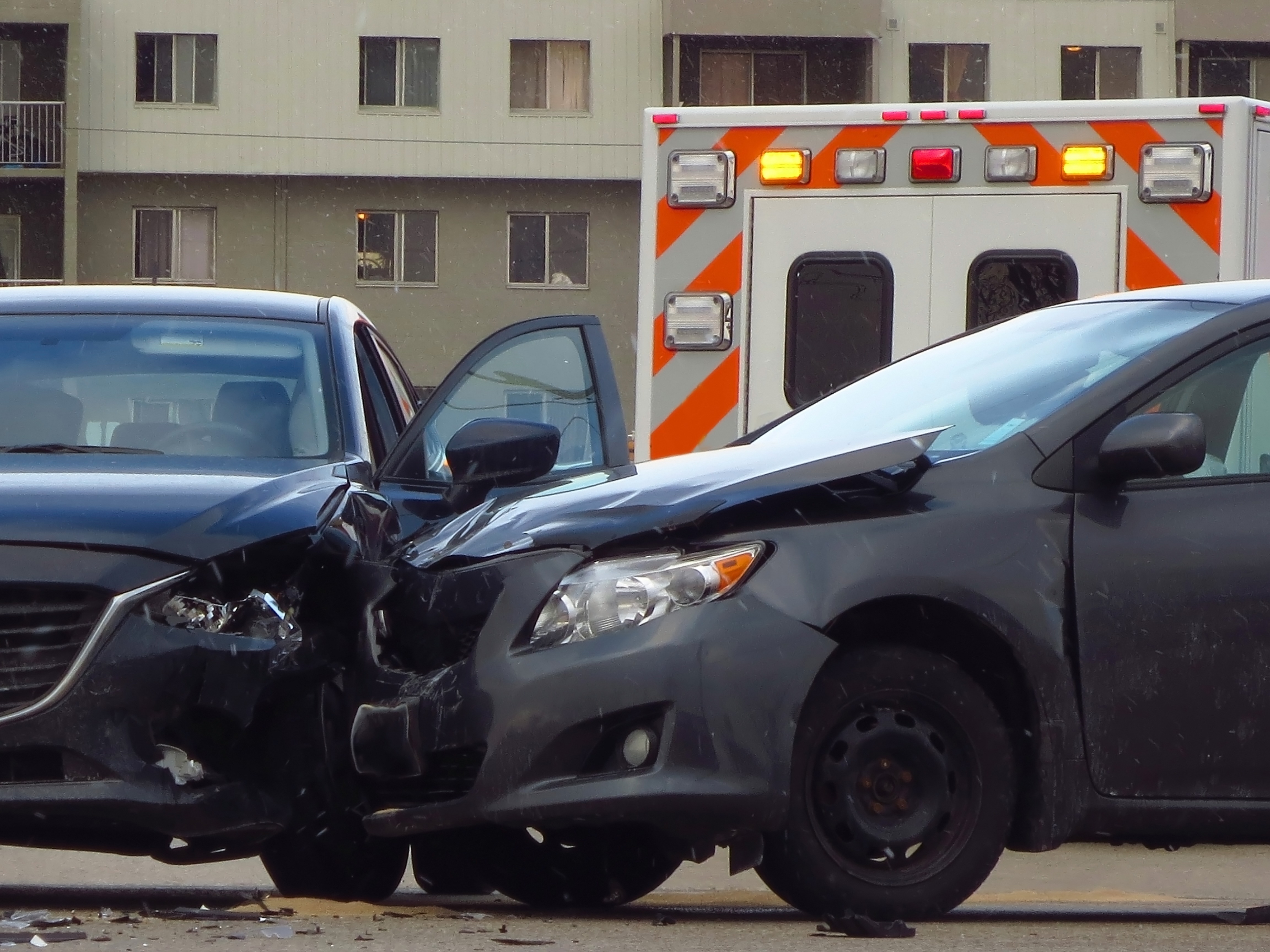Car accidents can be traumatic experiences. The distress often continues for months after the crash when a car accident victim in Tacoma, WA, encounters the fault-based car accident laws that require an injury victim to present compelling evidence of the at-fault party’s liability to recover compensation.
The Tacoma car accident attorneys at Sears Injury Law provide experienced legal representation throughout every step of the car accident claim process. Our law firm can help you recover maximum compensation for your injuries and ensure your rights are protected. Call our Tacoma personal injury attorneys today at (253) 544-5553.
Awards & Accolades
Why Choose Us as Your Car Accident Lawyers In Tacoma?
Most car accident claims are made directly against an at-fault driver’s insurance. Sadly, insurance companies are not on your side in this process and may protect their profits at your expense. You need assertive legal representation from the Tacoma car accident lawyers at Sears Injury Law. Here’s what our law firm has to offer:
- A free consultation with an experienced personal injury lawyer
- Contingency-based payment, meaning you only pay our fee after we’ve recovered compensation in your case
- A car accident lawyer who will come to you if your injuries prevent an office visit
- Access to accident reconstruction specialists and medical experts to strengthen your claim
- A law firm with over 100 years of combined experience navigating Washington’s insurance system, civil court, and injury laws
- A results-oriented approach through personalized legal strategies rather than a carbon-copy recovery plan that might not align with your goals
The attorneys at Sears Injury Law combine compassion with assertive legal action to achieve exceptional results for car accident victims. Contact our experienced team of car accident lawyers now for a free case review
Our Car Accident Case Results
$5,150,000
Car Accident Injury Vs. Insurance

$2,500,000
Car Accident Requiring Surgery

$1,600,000
Car Accident Requiring Surgery
Client Testimonials
“I had a great experience with Sears Injury Law, after my car accident. The team was professional, compassionate, and truly cared about getting me the help I needed. They guided me through the entire process, handled all the insurance headaches, and fighting hard to get me a fair settlement. I felt supported every step of the way and would highly recommend them to anyone dealing with a similar situation. 10/10 highly recommended!!!!”
Kevin S.
“Rob and team handled my car accident case with detailed care and compassion. My kids and I were hit by an impaired driver, we called Sears Injury Law the next day. The team at Sears made sure everything was taken care of so my family and I could focus on our healing and recovery rather than dealing with the insurance companies. Don’t hesitate to call, they will take great care of you!”
Emily T.
Tacoma Car Accident Resources & FAQs
- Common Injuries in Tacoma Car Crashes
- Common Causes of Car Crashes in Tacoma, WA
- Washington’s Comparative Negligence Law
- What Damages Can I Recover in a Tacoma Car Accident Claim?
- How a Tacoma Car Accident Lawyer Can Help
- Contact Our Tacoma Car Wreck Attorneys Today
- Visit Our Office in Tacoma, Washington
Common Injuries in a Tacoma Car Accident
The crash force of an accident propels the motorists forward at the speed the car was traveling before the seatbelt snaps them back against the seat, placing the body’s musculoskeletal system and organs under tremendous strain. At the same time, the car’s structure collapses inward at the collision point, causing blunt-force trauma to body parts. Common car accident injuries include the following:
- Broken bones
- Traumatic brain injuries
- Neck injuries
- Back injuries
- Soft-tissue injuries like sprains, strains, torn ligaments, and tendon damage
- Lacerations, contusions, and abrasions
- Internal organ injuries
- Spinal cord injuries
- External head, facial, and dental trauma
- Burns
- Traumatic amputations
Even a car accident victim with mild injuries deserves compensation for their medical expenses and lost wages when someone else was responsible for the accident, but a successful claim may be crucial to relieve injury-related financial hardship for those with serious or catastrophic car accident injuries.
Common Causes of Car Accidents In Tacoma, Washington
Tacoma is a busy city, with residents who live active, productive lives. Unfortunately, this daily bustle means streets and highways are often congested with traffic, undergo frequent construction, and frustrate drivers, thereby increasing the likelihood of vehicle accidents occurring. Some of the most common causes of car collisions our injury attorneys typically see include:
- Speeding
- Distracted driving
- Aggressive driving
- Reckless driving
- Drunk driving
- Tailgating
- Failure to yield the right of way
- Unsafe lane changes
- Road conditions
- Improper merging
- Traffic violations
- Improper passing
- Adverse weather conditions
- Tire blowouts
- Inadequate vehicle maintenance
In some cases, a negligent road maintenance agency or the manufacturer of a defective car part can cause a car crash. An assertive Tacoma car accident lawyer from Sears Injury Law will pursue compensation from all parties that contributed to the traffic accident to maximize the compensation available to their client.
How Does Comparative Negligence Law Impact a Tacoma Car Accident Claim?
Washington State has fault-based car accident laws allowing an injury victim to recover compensation from the responsible party. Even if a car accident victim contributed to the cause of the car crash, they can still recover compensation, but the insurance company subtracts their percentage of fault from the amount they pay out on the claim. RCW 4.22.005 states the following:
“In an action based on fault seeking to recover damages for injury or death to person or harm to property, any contributory fault chargeable to the claimant diminishes proportionately the amount awarded as compensatory damages for an injury attributable to the claimant’s contributory fault, but does not bar recovery.”
While this is good news for a Tacoma car accident victim who contributed to the cause or severity of the accident, it also incentivizes insurance adjusters to assign higher percentages of fault to an accident victim with substantial damages to protect company profits. By assigning an injury victim 40% fault for an accident, they can reduce a $100,000 claim to $60,000. A proactive Tacoma car accident attorney protects an accident victim’s best interests throughout the process.

Injured in a car wreck?
Contact Our Tacoma Car Accident Lawyers Today
What Damages Can I Recover In a Tacoma, WA Car Accident Claim?
An auto accident often causes far more than just property damage. When it results in serious injuries, the damages quickly escalate. Some injuries cause life-altering consequences, leaving an injury victim with disability and an uncertain future.
A successful Washington auto accident claim cannot undo the injury, but it can recover common damages such as the following:
- Reimbursement for past medical expenses
- Future medical costs for ongoing care
- Out-of-pocket expenses
- Compensation for lost earnings
- Future income loss or diminished future earning ability
- Compensation for pain and suffering
- Catastrophic injury damages specific to the auto accident case, such as scarring, disfigurement, loss of an organ, traumatic limb loss, the loss of one of the senses, or diminished quality of life
When an auto accident in Tacoma causes fatal injuries, a loved one may file a wrongful death claim with the help of a Tacoma wrongful death lawyer to recover compensation for their losses.
How Does a Car Accident Attorney Help with an Accident Claim?
Having strong legal representation when seeking compensation for car accident damages is always beneficial. Your car accident attorney from Sears Injury Law will do the following on your behalf:
- Handle all communication with the insurance company
- Investigate the accident to document clear evidence of another party’s negligence and liability under the state’s fault-based insurance law
- Carefully calculate economic and non-economic damages to maximize the compensation available to the injury victim
- Send their findings to the insurance company in a “demand package”
- Assertively argue for the highest possible settlement during negotiations with the insurance company
- Obtain an ample settlement or pursue the case in court
Nearly 95% of car accident cases end with a settlement. Insurance companies would rather avoid the additional expense of court, where juries are sympathetic to the injury victim. Your trial-ready attorney from Sears Injury Law will prepare all aspects of the your auto accident case as though for trial, making a more compelling argument for a settlement.
Contact Our Tacoma Car Accident Attorneys Today
After a car wreck in Tacoma, you should not leave your financial recovery in the hands of an insurance company without legal representation. If you or a loved one was injured in a motor vehicle accident, call the skilled Tacoma car accident lawyers at Sears Injury Law for a free, confidential case review. We will begin a strong strategy for your financial recovery while you focus on your physical well-being.
Visit Our Tacoma Office
Come visit us at our office in Tacoma, Washington. We are conveniently located near you at:
Second Level, 4826 Tacoma Mall Blvd
Tacoma, WA 98409








